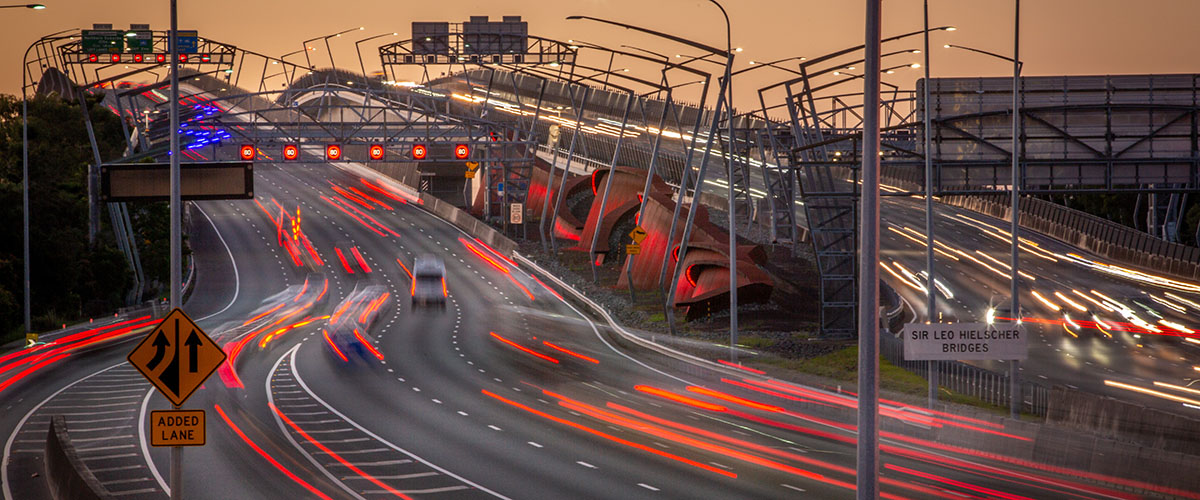The results are in for Transurban’s latest Urban Mobility Trends report, tracking people’s travel habits and preferences over time.
This research surveys around 5,000 people from across the cities where we operate (Melbourne, Sydney, Brisbane, the Greater Washington Area and Montreal. Here’s what respondents told us this year.
Travelling to work
Data on our post-pandemic commuting habits show most Australians surveyed are heading to their workplaces 3.9 days a week in 2024. We also found around 15% of respondents expect to be travelling to their workplace more often over the next year, with most heading back due to employer requirements.
In Australia, 61% of respondents are using their private vehicle for their commutes, while around the Greater Washington Area (where we operate express lanes on three major roads) the number of people driving their own vehicle to work jumps to 82%.
Transport mode choices
Driving remains a part of everyday life for many – on average, more than half (53%) of all respondents say they’re using their private vehicles every day. The highest levels of daily private vehicle use across all surveyed cities were recorded in Greater Washington (60%) and Brisbane (58%).
Those who travel a few times a week say they’ve been out and about more often in 2024, using a mix of private vehicles and public transport. The number of people driving a few times a week is up 3% on last year, to 33%, while the number of people using public transport increased 5%, to 30%.
Cost of living and transport costs
Ongoing cost-of-living challenges continue to shape household spending patterns. In Australia, 76% listed cost of living as the top issue requiring focus, followed by housing affordability and housing supply. In Greater Washington, jobs and economic growth came second to cost of living; and in Montreal, hospitals and healthcare were the second most important issue.
When it comes to the specific items causing stress on the household budget, groceries came out on top for all cities surveyed, followed by fuel. In Australia, 71% of commuters say they do not, or only occasionally, consider the price of fuel when making decisions about their daily trips. And almost half of daily North American commuters surveyed said the price of fuel is not a factor in travel decisions – despite the research also finding people were concerned about the price of fuel.
Congestion concerns now and in the years ahead
Traffic congestion remains a major concern for most respondents. More than 70% of Australian respondents are concerned about current congestion levels, and 80% fear it’s going to get worse in the next 10 years. Melburnians and Brisbanites are the most worried. Almost half are ‘completely concerned’ about congestion. In North America, 54% are concerned about congestion now, and even more – 63% – are concerned about the levels of gridlock they may face in a decade.
Transport infrastructure funding
Population growth is expected to put further pressure on transport infrastructure, especially in urban areas, compounding future congestion concerns. And this increasing pressure is coming at a time when government budgets are constrained by high levels of debt and many public priorities (including transport needs) are competing for funding. In Australia, 65% of respondents think that governments should meet infrastructure needs through a mixture of public and private funding. In the United States, 68% of respondents favour this funding mechanism.
Transurban data and insights
You can read all our research reports, including this one, at our Insights hub.

